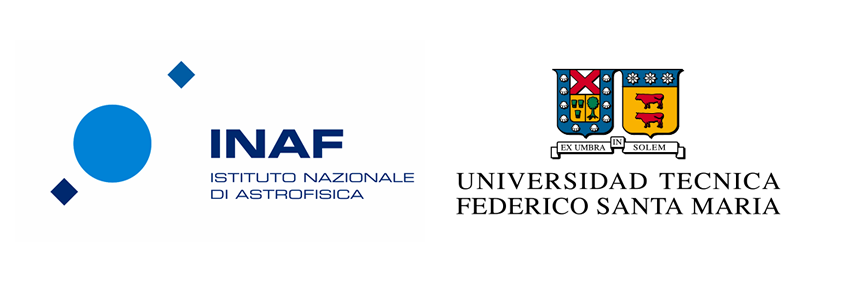INAF and Universidad Tecnica Federico Santa Maria (UTFSM) of Valparaiso for the development of the control software of ASTRI in ACS

UTFSM room with guests. Massimo Turatto is the last to the right of the table
On October 25th, 2022, in Valparaiso (Chile), the kick-off meeting of the new agreement between INAF and the Federico Santa Maria Technical University (UTSFM) has taken place. The agreement is related to the production of the ASTRI Mini-Array control software. Massimo Turatto, INAF researcher and now Italian scientific attaché in Chile, and various Chilean colleagues including Juan Yuz, Rector of the University were present. Other colleagues, including ASTRI Principal Investigator, Giovanni Pareschi, and ASTRI Project Manager Salvatore Scuderi, were connected remotely.
The agreement expands the international partnership of the ASTRI project, which is now in the executive phase, with the first telescope mounted in Tenerife and two others to be delivered in the coming months. Furthermore, the other six telescopes and the detection chambers are now in production. This is therefore the time to prepare the control system of the various telescopes, at the center of which is the control software. Particular standards, based on the Alma Common Software (ACS) IT infrastructure, developed precisely for the management of arrays of telescopes such as in ALMA, have to be followed.
As pointed out by Mauricio Araya, of the Astroinformatics section at the UTFSM and Director of the project for the control software of ASTRI, the Chilean group has a solid specific know-how in the field of control systems for astronomical projects in the ACS environment. In this field, UTFSM has twenty years of experience in Chile, with a legacy of successes including involvement in international projects, such as those led by ESO (European Southern Observatory), or by AUI (Associated Universities, Inc., USA, who manages the American share of ALMA). “The ASTRI project”, adds Araya, “is not in Chile, and therefore if we have been called to this task it is not because we are nearby, but because we know the system that ASTRI will have to use”.
“Working with ASTRI will open a new window because there is a need and the will to do it. But this is only the beginning of a new collaboration between our countries that we hope will last”, says Turatto.

The goals of the ASTRI control software

